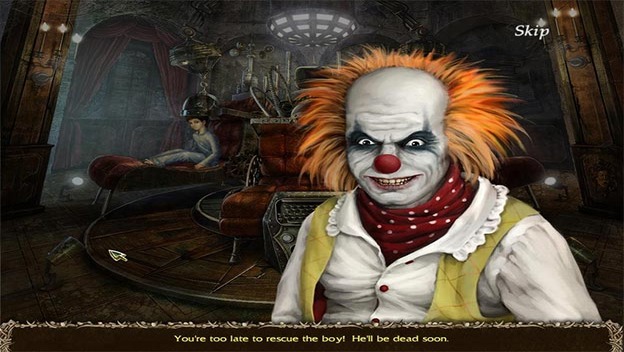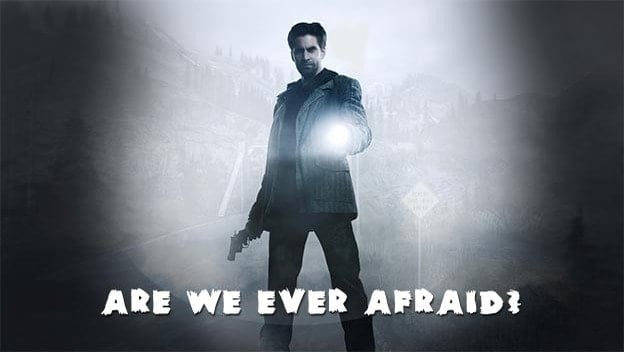People have been coming down hard on the survival horror genre recently for not being scary enough, and they do have a point. Many survival horror games are really just action games at this point. Resident Evil 6, which has some very good ideas, was almost universally panned because its scenes feel like they came straight out of a Michael Bay movie. If it wasn’t panned for Leon Kennedy running across car tops away from a gigantic explosion, it was panned for Sherry Birkin crawling under a lava elevator or Chris Redfield punching a submarine. Sure, none of this can be considered scary, but are we ever really scared when we play a survival-horror game?
Now, I’m not saying that you’ve never felt fear when playing a survival-horror game. That would be foolish. You can get a fear response simply by startling someone. But if I run up behind you on the street and scream “BLEH” in your ear, are you really afraid or are you just startled? Do you go about the rest of your day with the fear that someone else will jump-scare you, or do you just look over your shoulder every so often hoping there aren’t any more jerks like me around?
This is the sort of “fear” that we get from survival-horror games. We are only ever startled or worried about being startled. We are never actually filled with the worrisome dread that comes with real fear. However, books and movies have been filling us with this deep and true soul-shaking fear for a while now. So what is it that survival-horror videogames are missing?
It might not be that games are missing anything. In fact, it might be that they have too much. Confused? Let me explain.
When you watch a horror movie, TV show, or book, you are essentially along for the ride. The characters will do what they will, regardless of your input. Their fates are determined, so to speak. If they make a horrible mistake that ends up killing them, that’s it. That’s the end of their life. You can’t go back to the beginning of the book and try to read it again to make them survive.
This determinism embeds a sort of helplessness in the reader or watcher. The knowledge that you can do nothing to save the people who are steadily heading toward their death aids in producing a fatalistic terror and ever present dread while partaking in a horror experience. The most you can do is close your eyes and cover your ears when a death scene plays out and, even then, you’ll eventually see and hear the aftermath.
However, games don’t give us this same fatalistic feel. Instead, they are all about choice. They give us agency over the characters on screen. If you don’t want them to die, then it’s up to you to steer them away from danger. If they end up dying, then all you have to do is start again from the last check point.
As such, we never actually feel the dread we do in other forms of horror media when playing games. Here’s an example: You are playing a Silent Hill 2. Pyramid Head is chasing you and you are scared out of your mind. He eventually catches up to you and kills you. What is your reaction?
Normally, it’s to immediately reload the game and try again, right? You never sit back to contemplate what your death means. You might catch your breath for a while or maybe complain about how the game is being cheap, but the fear wears off. You just hop right back in to the same situation with the same crazy-demon butcher.
Now, think about a really good horror movie that has an ending where everyone dies. Think about how hollow you felt at the end of that. How almost shell-shocked you were as you drove home. Think about how the movie suddenly made you paranoid about things in real life. Think about how you became scared, looking over your shoulder and flinching at loud noises. Think about how the media experience leaked in to your day to day experience. Have you ever felt that with a videogame?

The thing is, we may never find a way to make survival-horror games actually scary, because their very nature devalues death, which is usually what we are afraid of when it comes to horror. If you die in the middle of a level, the story would come to an abrupt and anti-climactic end, so you have to be able to continue. But then, if you reach the end and the game kills your character anyway, what makes that death any different from the millions you experienced while getting there?
A couple of horror games have managed to truly instill fear and dread in us. Some indie games only give you one life. Other games subject you to fates worse than death. A few games are even impossible to die in, so every bad thing that happens has a magnified sense of dread. But perhaps the best games delve into your subconscious, making you feel real horror as your mind interprets things in the worst way possible. Yume Nikki is a great example of this. If you haven’t played this awesome indie game, go and download it right now!
But Resident Evil? Silent Hill? Anything with a zombie in it? I theorize that we are never actually scared of these games. Instead, we are empowered by them. We enjoy our chance to overcome what the game portrays as impossible odds. We know as long as we keep playing, we will survive in the end. Horror games aren’t really scary, they are success stories.
 | By Angelo M. D’Argenio Contributing Writer Date: May 9, 2013 |
